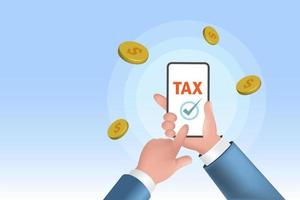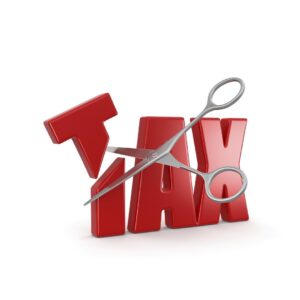

User Intent
Users searching for “One-Time Tax” are likely looking for a clear understanding of what it is, how it works, and its advantages and disadvantages. This article provides a detailed breakdown of One-Time Tax, its applications, benefits, and limitations, along with a comparative table to enhance understanding.
Introduction
Taxation is an essential part of any economy, helping governments generate revenue to fund public services. Among the various tax structures, the One-Time Tax is a unique concept that simplifies the tax burden for both individuals and businesses. But what exactly is it, and how does it work? Let’s dive deep into this taxation method to understand its implications and benefits.
Definition of One-Time Tax
A One-Time Tax is a tax that is imposed only once, either on a specific transaction, asset, or income. Unlike recurring taxes such as income tax or property tax, which are collected annually, a One-Time Tax is levied on special occasions like inheritance, wealth gains, or specific capital transactions.
For example, governments may introduce a one-time wealth tax during an economic crisis to redistribute wealth or impose a one-time import duty to control excessive imports.
Application of One-Time Tax
One-Time Taxes can be applied in various scenarios. Below are some of the most common applications:
1. Capital Gains and Windfall Taxes
- When an individual or business gains unexpected or large profits, such as from selling a high-value asset or winning a lottery, a one-time tax may be levied.
- Example: Some governments impose a windfall tax on industries that experience an unexpected surge in profits, such as oil and gas companies during high price fluctuations.
2. Inheritance and Estate Tax
- A one-time tax is often levied on inherited wealth above a certain threshold.
- Example: In the US, the federal estate tax applies to inherited assets above a certain exemption limit.
3. Special Government Initiatives
- Governments sometimes impose temporary one-time taxes to raise funds for specific projects or crises, such as war recovery or economic relief programs.
- Example: Some countries have introduced a one-time wealth tax to reduce fiscal deficits.
4. Import Duties and Tariffs
- Certain one-time import duties are imposed on high-value foreign goods to protect domestic industries.
- Example: Some governments apply one-time taxes on luxury imports such as high-end cars and jewelry.
Benefits of One-Time Tax
One-Time Taxes have several advantages over recurring taxation systems:
Simple and Efficient
- Since they are imposed only once, they reduce the complexity of annual tax compliance.
- Less paperwork and administrative costs for both taxpayers and tax authorities.
Reduces Long-Term Tax Burden
- Instead of paying periodic taxes, individuals and businesses pay once and are done.
- This is particularly beneficial for asset transactions where ongoing taxation could be a financial burden.
Targeted Revenue Generation
- Governments can address specific financial needs without altering the overall tax structure.
- Example: A country facing a budget deficit may impose a one-time tax on high-net-worth individuals to balance the economy.
Encourages Economic Activity
- Since these taxes are non-recurring, they do not discourage investment or consumption in the long run.
- Encourages long-term capital accumulation without the fear of repetitive taxation.
Limitations of One-Time Tax
Despite its advantages, One-Time Taxes come with several drawbacks:
May Be Perceived as Unfair
- Taxpayers who are affected may feel singled out, especially if the tax is imposed suddenly.
- Example: A business owner making a one-time profit may find it unfair to pay a high percentage in tax.
Difficult to Enforce
- Determining the right conditions for imposing a one-time tax can be complex.
- Governments might struggle with evasion and loopholes, especially if wealthy individuals shift their assets to avoid taxation.
Not a Reliable Revenue Source
- Since these taxes are imposed only once, they do not provide a steady revenue stream like annual income tax.
- Governments cannot depend on them for long-term fiscal planning.
Potential Negative Economic Impact
- A sudden one-time tax on businesses might discourage investment and lead to capital flight.
- Example: If high-net-worth individuals fear one-time wealth taxes, they might transfer their assets abroad.
Comparative Table: One-Time Tax vs Recurring Tax
| Feature | One-Time Tax | Recurring Tax |
|---|---|---|
| Frequency | Imposed once | Collected regularly (yearly, monthly) |
| Complexity | Generally simple | Requires ongoing compliance |
| Revenue Stability | Temporary, unpredictable revenue | Stable and predictable revenue |
| Fairness | Can be perceived as unfair | More evenly distributed over time |
| Economic Impact | Minimal long-term effects | May discourage investments |
| Government Use | Used for emergencies or special projects | Used for consistent public funding |
Conclusion
One-Time Tax is a unique form of taxation that serves as a temporary financial tool for governments while offering simplicity for taxpayers. It can be beneficial in special economic situations like windfall gains, inheritance, or national fiscal needs. However, its lack of consistency, enforcement challenges, and potential unfairness make it less reliable compared to traditional recurring taxes. Whether a One-Time Tax is a good solution depends on the specific economic and financial context in which it is applied.
FAQs
1. Is One-Time Tax the same as Capital Gains Tax?
No, Capital Gains Tax is a recurring tax applied whenever an asset is sold, while a One-Time Tax is imposed only once under special circumstances.
2. Can One-Time Taxes be avoided?
In some cases, taxpayers may use legal loopholes such as shifting assets offshore, but most governments have measures to prevent tax avoidance.
3. Why do governments impose One-Time Taxes?
Governments impose One-Time Taxes mainly for fundraising during economic crises or to redistribute wealth temporarily.
4. Do One-Time Taxes exist in every country?
No, some countries prefer recurring taxes over one-time levies due to administrative ease and stable revenue generation.
5. Are One-Time Taxes fair?
Fairness depends on how and when the tax is applied. If targeted correctly, it can help reduce economic inequality but may also be seen as disruptive to certain taxpayers.

To visit https://www.gst.gov.in/
For further details access our website https://vibrantfinserv.com/